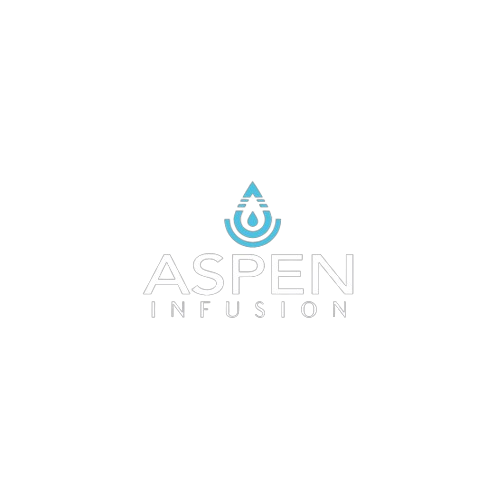DEVOPS SERVICES & SOLUTIONS
Streamline development.
Emphasize collaboration.
Access the top 1% of LATAM tech talent within 2 weeks. Employ robust DevOps
practices for improving the development cycle.







DevOps Development Services We Provide
Continuous Integration and Continuous Delivery
Implement a continuous integration/continuous delivery (CI/CD) pipeline to improve code quality, speed up time to market, and boost collaboration. A cornerstone of DevOps practices, CI/CD pipelines improve software efficiency and reliability.
We employ a variety of continuous integration, deployment automation, continuous monitoring, and configuration management tools to build an efficient CI/CD pipeline. Tools like Jenkins, Spinnaker, and Ansible help us solidify a pipeline that allows you to deliver software quickly and reliably.
Infrastructure Management
Manage and maintain your software and infrastructure effectively. In DevOps, infrastructure management is key to operational efficiency.
Infrastructure management requires many moving parts. Balancing automation and manual techniques, we optimize, monitor, and configure technology resources and processes. Our toolkit includes Terraform for Nagios for network management, Docker for containerization and orchestration, Prometheus for monitoring and logging, and more.
Infrastructure as Code (IaC)
Practicing IaC means automating traditional IT practices, improving efficiency, consistency, and scalability and reducing human error. Code-based infrastructure involves using high-level, descriptive coding instead of manual setup, configuration, and management of resources and infrastructure.
Using tools like Terraform, Ansible, and Chef we apply IaC practices to cloud environments, microservices, and more.
Automated Testing
Automated testing reduces the chances of human error and allows you to evaluate your software faster. In DevOps, it enables faster feedback, early bug detection, and rapid, reliable software release cycles.
We validate the functionality, security, performance, and other aspects of your application using tools like Selenium, JUnit/TestNG, Jest/Mocha, Cucumber, and more. We conduct a full suite of tests, from unit tests to security tests.
Security Management (DevSecOps)
Manage risks proactively. Enhance security. DevSecOps (development, security, and operations) embeds security throughout the software development lifecycle, making it a shared responsibility.
Following the principles and practices of automated security testing, infrastructure as code security, compliance monitoring, threat modeling, and more, we ensure that DevOps solutions are safeguarded against threats. We integrate these practices early on in development and perform ongoing assessments throughout the SDLC.
Configuration Management
Maintain performance and functionality consistency throughout the software development lifecycle. Configuration management ensures that your processes and operations are repeatable.
We standardize resource configurations, automate manual processes, and confirm the consistency, stability, and security of your apps and entire infrastructure. Tools like Ansible, Puppet, and Chef help us manage configurations.
Navigate
Accelerate your software development
Key Things to Know About DevOps
There are numerous benefits to successful DevOps implementation. Examples include:
- Faster development lifecycles: Streamline processes and shorter time to market.
- Improved collaboration: Breaks down silos between development and operations teams.
- Better communication: Leads to faster problem resolution.
- Great efficiency: Automates repetitive tasks and utilizes resources more efficiently and effectively.
- Enhanced security: Shared responsibility, automated compliance policies, and configuration management methods to ensure security standards.
- Predictability and reliability: More predictable releases thanks to frequent and smaller updates.
- Greater scalability and flexibility: Better ability to adapt to changing market conditions and consumer demands.
- Customer satisfaction: Continuous improvements and better usage of user feedback lead to stable, reliable user experiences.
- Higher quality software and outcomes: Better feedback loops, continuous monitoring, and CI/CD pipelines to improve the overall quality of software.
Traditional development cycles and DevOps are different in terms of culture, processes, tools, and outcomes. DevOps is a more dynamic, collaborative, and efficient approach that is suitable for businesses that want to accelerate development, improve software quality, and respond effectively to market changes.
Specifically, differences include:
- Collaboration: DevOps emphasizes collaboration between development, operations, and other teams. This leads to faster feedback and fewer departmental silos. Traditional development is more siloed, with teams having limited interaction.
- Speed: DevOps prioritizes speed and efficiency through the automation of processes like testing, integration, and deployment. Traditional development focuses more on manual processes, which mean a longer process.
- Feedback and Improvement: While feedback is gathered at the end of a traditional development cycle, DevOps includes a continuous feedback loop. This leads to faster iteration and improvement.
- Approach to Software Releases: DevOps focuses on frequent, small, and incremental releases. Traditional development relies on fewer and larger releases, which means feedback and changes occur less quickly and frequently.
- Quality Assurance: QA is integral to the DevOps development process, with testing and monitoring occurring throughout. In traditional cycles, quality assurance happens after the development phase, and defects may already interfere with the software’s functionality and performance.
- Culture: DevOps fosters a culture of collaboration, change, continuous learning, shared responsibility, and adaptability. Traditional software development is generally characterized by a siloed, segmented approach and less collaboration.
- Scalability and Flexibility: The DevOps approach is scalable and adaptable to various changes, while traditional development has a more rigid structure and longer release cycles.
- Risk Management: In DevOps, the frequent release cycle and continuous testing reduce risks such as major failures because problems are identified and resolved in small increments. This contrasts the infrequent release cycles with larger updates, which can lead to higher risks and greater impact if problems occur.
- Tools and Technologies: Tools in traditional environments tend to be less integrated. There is also less emphasis on automation. DevOps involves tools for version control, continuous integration, continuous deployment, monitoring, and collaboration.
- Resource Management: DevOps practices promote efficient resource utilization, while a traditional approach may involve resources that are under or over-utilized due to silos between development and operations teams.
CI/CD is an important set of practices within a DevOps strategy. The goal is to practice continuous development and improvement. It enhances software delivery and the overall development process in several ways:
- Decreases time to market
Improves collaboration, visibility, and transparency - Leads to better quality and reliability
Makes effective use of resources - Reduces risk through the implementation of small, incremental changes to software
- Enables scalability
- Enhances security
- Establishes a continuous feedback loop
- Improves efficiency and agility
We use many DevOps tools to automate processes, improve collaboration, and enhance the overall development cycle. They include:
Continuous Integration and Continuous Deployment (CI/CD)
- Jenkins
- GitLab CI/CD
- CircleCI
- Travis CI
- Bamboo
Configuration Management
- Ansible
- Puppet
- Chef
Infrastructure as Code (IaC)
- Terraform
- AWS CloudFormation
Containerization and Orchestration
- Docker
- Kubernetes
- Docker Swarm
Monitoring and Logging
- Prometheus
- Grafana.
- Elastic Stack (ELK Stack)
Cloud Platforms
- AWS (Amazon Web Services)
- Microsoft Azure
- Google Cloud Platform (GCP)
Collaboration and Issue Tracking
- Slack: A messaging platform used for team collaboration.
- Jira
Security and Compliance
- SonarQube
- Nessus
Artifact Repositories
- JFrog Artifactory
- Nexus Repository
Infrastructure as Code is an important DevOps element that offers many benefits, such as:
- Increased development speed and efficiency
- Scalability and flexibility
Greater reliability, consistency, and stability - Improved security
- Cost-effectiveness
- Collaboration
- Better disaster recovery measures
FAQ
DevOps is a methodology that brings together development and operations teams to streamline software delivery. It emphasizes collaboration, automation, and continuous improvement, resulting in faster releases, reduced errors, and better customer satisfaction.
DevOps enhances development speed and quality by automating processes, facilitating faster feedback loops, and enabling more frequent releases. It leads to better communication between teams and quicker responses to changing market demands.
Businesses of all sizes and industries can benefit from DevOps. Startups can innovate quickly, while established enterprises can optimize processes, reduce downtime, and increase operational efficiency.
Our DevOps consulting follows a structured approach: we assess your current practices, design a tailored strategy, implement necessary tools and processes, provide training, and continuously refine your DevOps journey for sustainable success.
Absolutely. Our DevOps experts guide you through cultural changes, breaking down silos between teams and fostering collaboration. We help establish shared responsibilities, efficient communication, and a mindset focused on continuous improvement.
With our DevOps expertise, you can expect reduced deployment times, higher release frequency, lower failure rates, faster incident resolution, and improved alignment between development and business goals. These outcomes translate into increased customer satisfaction and a competitive edge.
Why Choose SolarDevs for DevOps Development

Top 1% of Tech Talent
We hire only the top 1% of tech talent. Our DevOps engineers and other professionals are thoroughly vetted and stay up to date with best practices and trends in the field.
Robust Security Measures
We employ robust security measures, such as data encryption and code analysis and reviews, to ensure your information and software are safe. Our DevOps engineers implement DevSecOps processes, including automated compliance checks, dependency scanning, and automated testing. We also have strict NDAs in place to protect your business.
Custom Solutions
Through DevOps and agile approaches, we develop custom solutions to meet diverse needs. From web apps and mobile apps to sophisticated systems and migrations, we deliver tailored software for businesses across numerous industry sectors.
